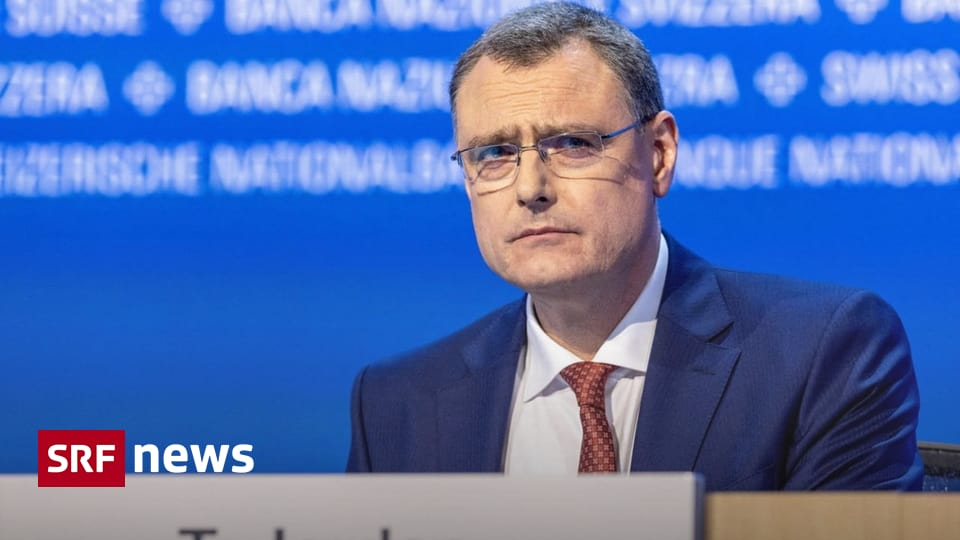The key interest rate remains at 1.75 percent. After five interest rate increases, the National Bank decided not to raise them again. In an interview, SNB boss Thomas Jordan explains the reasons.
Thomas Jordan
National Bank President
Open the people box. Close the people box
Thomas J. Jordan was born in Biel in 1963. He studied economics and business administration at the University of Bern. He was elected President of the SNB Board of Directors by the Federal Council in 2012.
SRF News: In June there was a feeling that there would be another interest rate increase today. Now leave the key interest rate where it is, at 1.75 percent. What has fundamentally changed?
Thomas Jordan: Overall, we have slightly lower inflation pressure. If you look at the inflation forecast, you can see that at the longer end, i.e. 2025, inflation will now be below two percent again. We also had some appreciation of the Swiss franc. Both of these things have prompted us to wait and see what happens next and then decide again in December whether a further tightening of monetary policy is necessary.
What drives inflation? And what will inflation be like in the coming months?
We currently have fairly low inflation of 1.6 percent. But it will rise again. Our forecast shows that it will increase to around 2.2 percent. The main drivers of this increase are rents and energy prices.
How big do you think the risk of further second-round effects is?
We are of course observing second-round effects. They always exist and will continue to exist in the future. It is a question of at what altitude they take place. And of course, if energy becomes more expensive, the costs for companies increase. What is important to us is that we do not have increasing second-round effects, but rather that they reduce to an acceptable level over time.
We will continue to monitor the situation. If necessary, we will not hesitate to tighten monetary policy further.
In your opinion, to what extent is there a risk of a wage/price spiral?
That depends on how wages develop. But we’re staying out of this. It is simply very important that we have a development that does not push inflation up too much in the medium term.
Under what circumstances are further interest rate steps possible in the future?
We do not make any predictions in this regard. We made it clear today that we are monitoring the situation. If necessary, we will not hesitate to further tighten monetary policy to ensure that we can sustainably stabilize inflation in the area of price stability.
Switzerland’s important trading partner Germany slipped into a technical recession this year with negative economic growth in two consecutive quarters. How great do you think the risk is that this could also happen in Switzerland?
We have not assigned any probability to this scenario. The last quarter was also a black zero, i.e. slightly positive. However, it cannot be completely ruled out that the global economy will develop more negatively than we currently assume.
Andreas Kohli conducted the interview.
